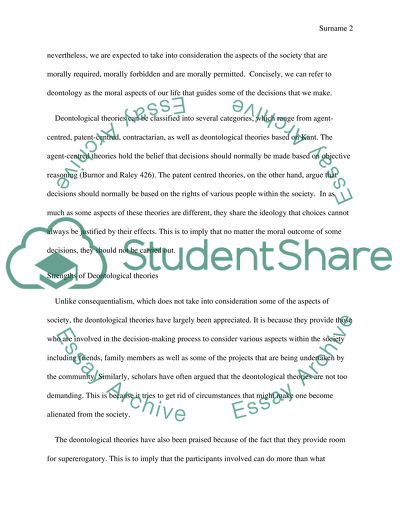Cite this document
(Weakness of Virtue Ethics and the Process of Decision Making Essay Example | Topics and Well Written Essays - 1750 words - 1, n.d.)
Weakness of Virtue Ethics and the Process of Decision Making Essay Example | Topics and Well Written Essays - 1750 words - 1. https://studentshare.org/philosophy/1652494-weakness-of-virtue-ethics-and-the-process-of-decision-making
Weakness of Virtue Ethics and the Process of Decision Making Essay Example | Topics and Well Written Essays - 1750 words - 1. https://studentshare.org/philosophy/1652494-weakness-of-virtue-ethics-and-the-process-of-decision-making
(Weakness of Virtue Ethics and the Process of Decision Making Essay Example | Topics and Well Written Essays - 1750 Words - 1)
Weakness of Virtue Ethics and the Process of Decision Making Essay Example | Topics and Well Written Essays - 1750 Words - 1. https://studentshare.org/philosophy/1652494-weakness-of-virtue-ethics-and-the-process-of-decision-making.
Weakness of Virtue Ethics and the Process of Decision Making Essay Example | Topics and Well Written Essays - 1750 Words - 1. https://studentshare.org/philosophy/1652494-weakness-of-virtue-ethics-and-the-process-of-decision-making.
“Weakness of Virtue Ethics and the Process of Decision Making Essay Example | Topics and Well Written Essays - 1750 Words - 1”. https://studentshare.org/philosophy/1652494-weakness-of-virtue-ethics-and-the-process-of-decision-making.


